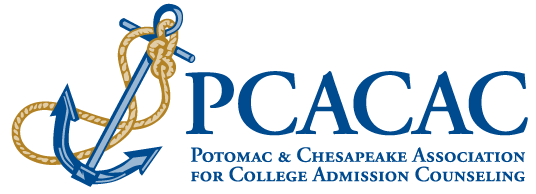As part of the PCACAC AP Committee’s desire to proactively discuss ethics, we will be sending out monthly “case studies.” In these cases, we will offer a situation and discuss whether the issue is in compliance with NACAC’s Statement of Principles of Good Practices (SPGP). This month’s case study was submitted anonymously by a PCACAC member as a question for the AP Committee. All questions and allegations are treated as confidential; therefore, this case has been adapted to protect the identity of the professional who called seeking advice. If you have a question about a situation or SPGP, please contact a member of the AP Committee.
September Case: This past August, Great College called our office seeking the final transcript for Student Q who had sent in an enrollment deposit. However, our records indicated the student was enrolling at a US Service Academy. We were surprised by the request because we work to educate our families well about the unethical behavior and complications that result in double-depositing. Therefore, we contacted the parents to tell them of the transcript request and that the school would not be sending another transcript unless the parents provided proof that the Academy had been notified of the student’s withdrawal. The parents responded that they double-deposited because they were unsure if the student would survive the physical and intellectual rigors at the Academy and that they wanted a backup plan. Furthermore, since the Academy starts earlier in the school year, the student would be able to decide if (s)he is staying before Great College begins freshman orientation. We continued to reply "no" to releasing the transcript. The parent then stated that they may consult legal action as they believe the records are the ownership of the student and that the school must release if requested.
The member asks, “Does NACAC’s SPGP provide guidance? Are the rules bendable in this scenario because of the nature of the service academies and the parents’ concern for their child? Should we have just released the transcript and left the lesson behind? Called Great College and explained the situation?”
Discussion: NACAC does provide some guidance on this, but not as a Mandatory practice. According to NACAC’s SPGP Best Practice III B 13, “All Counseling Members should counsel students not to submit more than one admission deposit, which indicates their intent to enroll at more than one institution.”
Also important to note, the SPGP is written to guide counselors and admission officers, not students. NACAC does provide advice geared towards students, such as the “Deciding” page the NACAC website section, Breaking Down the Admission Process, which states, “You should never submit an enrollment deposit to more than one school. It is an unethical practice that may result in your acceptances being withdrawn by the colleges involved.” This information is also part of a flyer, “College Breakdown”, available on the NACAC website. Furthermore, NACAC provides more depth to this message on page 18 of the Guide to the College Admission Process which states, “Colleges typically require admitted students to verify their intention to enroll by submitting a deposit or fee. The money (also known as admission deposit, commitment deposit, or commitment fee) is usually applied to a student’s tuition charges for the upcoming academic year. Colleges that are members of the National Association for College Admission Counseling (NACAC) allow accepted applicants the opportunity to learn the decisions of all colleges they have applied to before requiring deposits, provided that all decisions are made before May 1. The student, in turn, is obligated to submit a tuition deposit to only one college before the required deadline (typically May 1). Colleges view dual or multiple deposits by students as serious violations of trust. They may revoke a previous offer of admission from any student who is found to have sent tuition deposits to more than one college.”
Conclusion: This is a tough situation and puts the counselor in an awkward position. The counselor and school are following NACAC’s Best Practice because they have made numerous efforts to educate parents about the issues involved with double-depositing. The fact that the parent threatens to consult lawyers can be frightening. Therefore, before they encounter such a situation, many counselors work with their administration/district to make sure they have written and published policies that have been vetted by their school and/or lawyers. Examples of topics they might wish to have covered in policies might include academic record definitions, sending of final transcripts, discipline reporting, etc.
As to the additional questions, it is hard to predict how Great College would react—it would probably depend on the situation, school, and college involved. The counselor would need to work with the school administration to determine how to best proceed and might want to get additional information from Great College (possibly by calling an admission officer to discuss the situation in hypothetical terms) before proceeding.
Thank you to the member who brought this question to the AP Committee. This summer, several similar situations were also brought forth—it is certainly a complex issue with no easy answer.
If you wish to file a complaint, please complete a NACAC Confidential Complaint form. All personal information will be kept confidential, but the information will be forwarded to the appropriate affiliate AP Committee. This committee will follow up on the issue.
Want to review previous case studies?
Want to submit a case for consideration? Please e-mail the PCACAC AP Committee Chair at jtalmage@stpaulsschool.org
